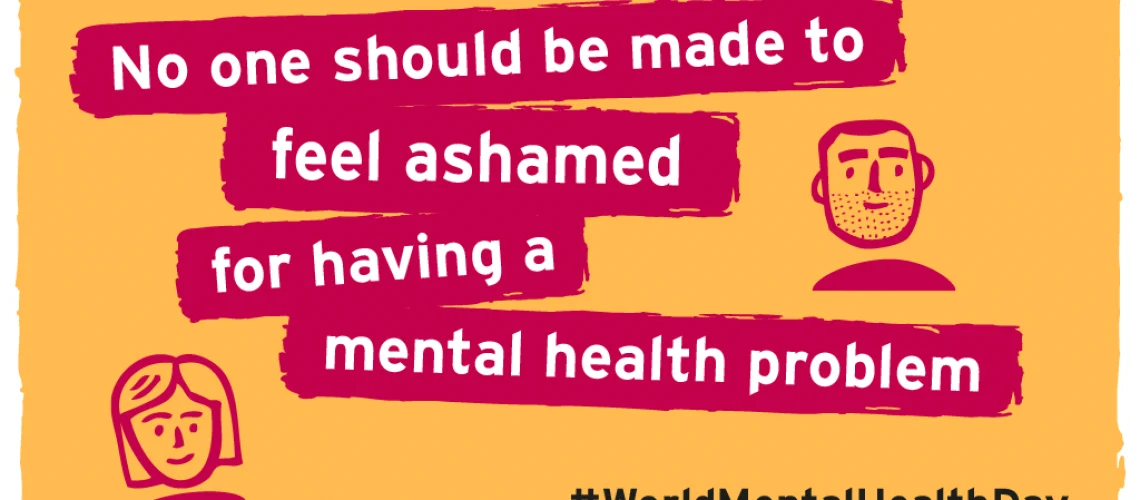Today is World Mental Health Day, providing us with the opportunity to discuss Mental Health, and try to diminish the stigma that seems to attach itself to this topic. This year’s theme is ‘Suicide and Suicide Prevention’, and with 800,000 people taking their own lives every year globally, it’s important to encourage vulnerable people to speak out.
Suicide has now become the leading cause of death between 20 – 34 years old in the UK, and these figures are significantly higher in men, according to ‘Time to change’ which a growing social movement trying to improve the behaviours and attitudes surrounding mental health.
Considering the average person spends around 1,800 hours a year at work, it’s important to ensure staff feel safe in their working environment, and can seek help if they need it. The rail industry is already suffering from an aging workforce, and with suicide being the leading cause of death in over 50’s, this is an issue that needs to be addressed urgently.
RSS Infrastructure Ltd (RSSI) and INFRA Skills Ltd are putting many initiatives in place, to try and reduce the negative impact that a working environment can have on a person. High levels of fatigue from working long hours can result in lower standards of performance and safety, as well as having an effect on the individual’s wellbeing. With this being said, RSSI have a fatigue monitoring system in place, which commences during the rostering process, where the in-house CRM is used to calculate the travel time to and from site, shift duration and work type. Any concerns with travel exceedance or shift duration (14 hours from door to door) are automatically flagged ensuring that workers cannot be rostered to shifts or projects unless adequate measures, such as local accommodation, are put in place to ensure that ‘Everyone [returns] home safe, everyday”.
RSSI have also taken precautions to make the transportation of workers to the site safer. They have become the first company in the rail sector to utilise a specialist Driver Awareness Warning System (DAWS). The warning system is a dash-mounted device and focuses on the driver’s retina and measures their ‘blinking pattern’ sounding audible warnings if signs of drowsiness, fatigue and/or attention is diverted from the road.
Managing staff’s fatigue, paying above national minimum wage, providing full PPE, as well as safe travel to and from work are just some of the ways RSSI are trying to reduce the negative impact work have on a person’s wellbeing.
Rail Suicide is still a prevailing issue, with 279 rail suicides in the UK in 2018/2019, seeing an increase of 21 fatalities on the previous year. Network Rail (NR) have been putting a lot of focus on their Rail Suicide Prevention Programme, and Auctus Management Group have been bolstering the efforts of this through their workplace initiatives.
Within the ‘INFRA Family’ a Wellbeing Network has been established, with volunteers within the companies attending a Mental Health First Aid course. This course offered an in-depth introduction to the onset, nature and treatment of mental ill health, as well as providing an enhanced knowledge of the range of support, therapies and self-help strategies available. By the end of the two-day course the learners had also developed first aid skills for supporting people experiencing mental distress prior to professional involvement, and became part of a group of ‘Wellbeing Champions’ within the business. The ‘Champions’ meet regularly to discuss initiatives, awareness and support, and now have the knowledge and confidence to provide the first means of support to anyone suffering from mental ill health. They are also responsible for driving the wellbeing message across the workforce and highlighting any concerns.
Although there has been an increase in the number of rail suicides over the past year, there has also been an increase of 33% in the amount of suicide preventions according to Network Rail. Auctus Management Group Ltd, and its subsidiary businesses, are supporting Network Rail’s ‘Suicide Prevention Programme’ through their wellbeing initiatives, working towards the government’s target to reduce suicides by 10% in 2020/2021.
If you are seeking advice or help about your own mental health, or someone else’s, there are a lot of charities and support helplines available.
For more information, or for a safe way to seek advice there are many helplines available.
MIND – 0300 123 3393
www.mind.org.uk/help/advice_lines
Calm – 0800 58 58 58
Website: www.thecalmzone.net
Samaritans – 116 123
Papyrus – 0800 068 4141
For more information on World Mental Health Day visit: www.time-to-change.org.uk/wmhd

